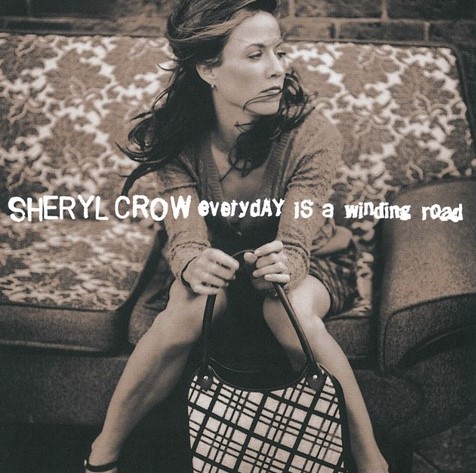Happy Wednesday and welcome to a new installment of my recurring midweek feature, in which I take a closer look at songs I’ve only mentioned in passing or not covered at all to date. This pick was inspired by fun New Jersey country-oriented band Sheriff Restless and a recent gig I caught during which they played You Ain’t Goin’ Nowhere, a song I absolutely love. More specifically, I decided to highlight the rendition by The Byrds.
You Ain’t Goin’ Nowhere was written by Bob Dylan in Woodstock, N.Y. in 1967. This song fell into Dylan’s self-imposed exile from public appearances in the wake of his July 1966 motorcycle accident. His first released version of the song was included on the November 1971 compilation Bob Dylan’s Greatest Hits Vol. II – more than three years after The Byrds had put it out in April 1968 as the lead single of their sixth album Sweetheart of the Rodeo, marking the first song’s commercial release.
Dylan’s writing of You Ain’t Goin’ Nowhere fell into the period between June and October 1967 when the maestro penned many new songs and recorded them with The Band who at the time were still called The Hawks. Many of these recordings, at a house known as Big Pink, were first officially released in June 1975 as The Basement Tapes, though most had already appeared earlier on various bootleg albums.
The Byrds picked You Ain’t Goin’ Nowhere as a cover after their label Columbia Records, which also was Dylan’s record company, sent them some demos from the Woodstock sessions. They recorded their rendition in March 1968. While it didn’t become as famous as their gorgeous cover of Mr. Tambourine Man, some critics have called it their best Dylan cover.
“I thought they sounded really good,” Roger McGuinn told Uncut, referring to the demos, as documented by Songfacts. “You didn’t know what Bob was up to; and far as I knew, he was just laid up from a motorcycle accident. But I think it was probably a reaction to the psychedelic thing. It just got to be too much and everybody wanted to back off.”
Unlike the song title may have suggested, the single by The Byrds went to no. 74 in the U.S. on the Billboard Hot 100 and reached no. 45 on the UK Singles Chart. Here’s a version Roger McGuinn and his ex-Byrds mate Chris Hillman recorded with the Nitty Gritty Dirt Band. A single of it released in 1989 made the top 10 of Billboard’s Hot Country Songs chart.
According to Wikipedia, The Byrds’ rendition of You Ain’t Goin’ Nowhere led to a minor controversy with Dylan: Dylan’s original demo of the song contained the lyric, “Pick up your money, pack up your tent”, which was mistakenly altered in the Byrds’ version, by guitarist and singer Roger McGuinn, to “Pack up your money, pick up your tent”. Dylan expressed mock-annoyance at this lyric change in his 1971 recording of the song, singing “Pack up your money, put up your tent, McGuinn/You ain’t goin’ nowhere.” McGuinn replied in 1989 on a new recording of the song included on the Nitty Gritty Dirt Band’s Will the Circle Be Unbroken: Volume Two album, adding the word “Dylan” after the same “Pack up your money, pick up your tent” lyric. Egos in music!
Evidently, all was forgotten by October 16, 1992, when Roger McGuinn and many other prominent artists came together at New York’s Madison Square Garden to celebrate Bob Dylan’s 30th anniversary as a recording artist. Most of the concert, dubbed Bobfest, was captured on CD and VHS. Subsequently, in March 2014, the concert was re-released in Deluxe Edition 2-DVD and Blu-ray sets with bonus performances and behind-the-scenes rehearsal footage, as well as a 2-CD set with two bonus rehearsal tracks. Here’s You Ain’t Goin’ Nowhere performed by Mary Chapin Carpenter, Rosanne Cash and Shawn Colvin. You can read more about Bobfest here.
In addition to The Byrds and the aforementioned renditions, You Ain’t Goin’ Nowhere has been covered by many other artists. SecondHandSongs lists more than 100 versions. Here’s a neat rendition by a cappella group The Persuasions from an apparent Dylan tribute titled Knockin’ On Bob’s Door, released in 2010.
Given the repeated references to Dylan throughout the post, I felt I would have been amiss not to include at least one version by him. I’m leaving you with the above noted recording that appeared on the November 1971 compilation Bob Dylan’s Greatest Hits Vol. II.
Sources: Wikipedia; Songfacts; SecondHandSongs; YouTube






